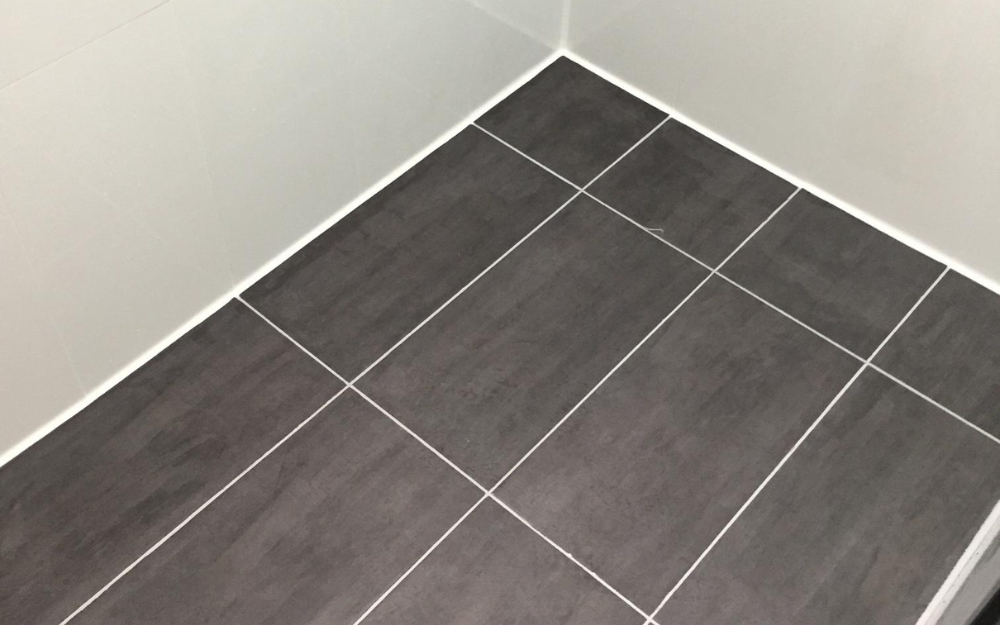Can missing grout cause leaks
When it comes to bathroom maintenance, grout often goes unnoticed until a problem arises. Missing grout might seem like a minor issue, but it can lead to significant consequences, including water leaks. At Leaky Showers, we know that seemingly small issues like missing grout can escalate into larger problems. Here’s what you need to know about how missing grout can cause a leaky shower and what you can do about it.
Why Is Grout Important?
Grout is the material used to fill the gaps between tiles. It serves two main purposes:
- Sealing: Grout acts as a barrier, preventing water from seeping between the tiles into the underlying structure.
- Support: It helps stabilise the tiles and keeps them firmly in place.
Properly cleaning the existing grout is crucial to eliminate mould and dirt before applying new grout, preventing issues like cross-contamination and ensuring a thorough repair.
When grout is missing or damaged, it compromises these functions, allowing water to penetrate and causing potential leaks.
The Role of Grout in Shower Waterproofing
Grout plays a pivotal role in shower waterproofing by filling the gaps between tiles and creating a watertight seal. When grout is properly applied and maintained, it acts as a barrier, preventing water from seeping behind the tiles and into the walls or floor. This is crucial in maintaining the integrity of your shower recess and preventing water leaks. However, when grout becomes damaged, cracked, or missing, it compromises the waterproofing of the shower. This can lead to leaks, water damage, and the need for costly repairs. Ensuring that your grout is in good condition is essential for a leak-free shower.
Causes of Leaks in Shower Grout
Leaks in shower grout can occur due to a variety of factors, each contributing to the deterioration of the grout lines. Poor grout application or maintenance can leave gaps that allow water to penetrate. Cracked or damaged grout, often resulting from wear and tear or improper installation, can also lead to leaks. Missing grout is another common culprit, as it leaves spaces for water to seep through. Additionally, old or deteriorated grout loses its effectiveness over time, making it more susceptible to leaks. Inadequate cleaning and maintenance of the grout lines can exacerbate these issues, as dirt and mould can weaken the grout. High water pressure and flow can also stress the grout, leading to cracks and leaks. Regular inspections and maintenance of the shower grout are essential to identify and address potential issues before they escalate into major problems.
How Missing Grout Leads to a Leaking Shower
- Water Infiltration: Without grout, water can seep between the tiles and reach the substrate or waterproofing membrane. Over time, this may cause the membrane to fail or allow water to leak into surrounding areas. Using a proper grout mixture when replacing missing grout is crucial to prevent contamination and ensure a smooth and effective filling of grout lines.
- Structural Damage: Brisbane’s humid climate exacerbates the effects of water infiltration. Prolonged exposure to moisture can weaken the structure beneath the tiles, leading to costly repairs. Properly applying new grout after removing the old grout is essential to prevent leaks and maintain the integrity of the shower.
- Mould and Mildew Growth: The gaps created by missing grout provide a perfect environment for mould and mildew to thrive, posing health risks and further damaging the bathroom.
- Tile Movement and Cracks: Missing grout can cause tiles to become loose or shift, increasing the risk of cracks and further water penetration.
The Impact of Missing Grout on Shower Trays
Missing grout can have a significant impact on shower trays, as it allows water to seep into the gaps and compromise the waterproofing of the shower. When grout is missing, water can penetrate the shower tray, leading to water damage in the surrounding areas, including the bathroom floor and walls. This can result in mould and mildew growth in the grout lines, creating an unhealthy environment and further damaging the shower. Additionally, the absence of grout can cause tiles to crack or become damaged, necessitating costly repairs to the shower tray and surrounding areas. Addressing missing grout promptly and properly is essential to prevent further damage and ensure the longevity of your shower. Regular maintenance and timely repairs can save you from expensive fixes down the line.
Signs That Cracked Grout Is Causing Leaks
- Water stains: Look for stains on walls, ceilings, or floors adjacent to the shower area.
- Mould or mildew: Noticeable growth around tiles or in corners is a red flag.
- Loose tiles: Tiles that wobble or feel unstable may indicate missing grout and water damage.
- Persistent damp smell: A musty odour in the bathroom can be a sign of hidden leaks.
Addressing these signs promptly is crucial to prevent leaking showers, which can lead to significant water damage and increased water bills.
How to Fix Missing Grout
- Inspect and Identify: Regularly inspect your shower for missing or cracked grout, especially in high-use areas. Properly handling old grout is crucial before applying new grout to prevent cross-contamination and ensure a successful application.
- Regrouting: Replace the missing grout promptly to restore the seal. Use a high-quality, water-resistant grout to ensure durability. A grout float is essential for evenly spreading the grout and filling gaps fully, preventing air pockets which could lead to further damage.
- Professional Repairs: If you suspect leaks caused by missing grout, it’s best to call in professionals. At Leaky Showers, we can assess the extent of the damage and provide effective, long-lasting solutions. Additionally, using silicone sealant can enhance the waterproofing by sealing areas where grout may be damaged or leaking.
Preventative Measures for Shower Leaks
- Seal Your Grout: Applying a grout sealant can enhance its water resistance and longevity.
- Regular Cleaning: Keep your shower clean to prevent mould and deterioration of grout.
- Monitor Wear and Tear: Check for any signs of grout erosion or cracking and address them promptly. Additionally, inspect the shower floor for signs of leaks by cleaning it, covering the drain, and filling it with water to observe any water accumulation.
Contact the Experts
Missing grout is more than just a cosmetic issue; it can lead to leaks and costly repairs. Addressing shower leaks promptly is crucial to prevent further damage. If you’ve noticed gaps in your grout or signs of a leak, don’t wait. At Leaky Showers, we specialise in efficient and effective shower repairs, including regrouting and leak detection. Contact us today for a consultation and let us help protect your home from water damage.

